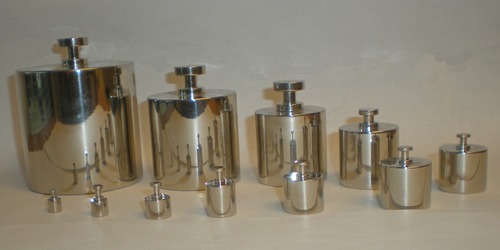Programs and Services

Weighmaster Program
A “Weighmaster” is a business licensed by the state of California to weigh, measure, or count bulk commodities absent the buyer, as long as they issue a Weighmaster Certificate documenting the quantity that is used as the basis of a sale. A Weighmaster can be the buyer, seller, or third party. Weighmaster activities are monitored and compliance is verified through the utilization of routine record audits, tare verifications and occasional test sales or purchases. Diverse businesses such as wineries, cement plants, scrap metal yards, dairy co-ops, moving and storage companies, livestock dealers, quarries, and feed mills are all weighmaster.
Measuring Devices
Instruments used to determine volume, distance, dimensions, and time are all measuring devices. The device that people are most familiar with is the gas pump. Inside the cabinet is a meter that determines the quantity of fuel dispensed. Standards Specialists test each meter by dispensing five gallons at the fast (or open) speed then five gallons at the slow (restricted) speed into calibrated measures, compare the monetary computations, check that the tamper-proof seal on the meter adjustment is intact, and other details required in the Examination Procedure Outline distributed by Measurement Standards. Other measuring devices include taximeters, wire and rope meters; wholesale water meters; oil meters; timers in car washes, laundromats, parking garages, milk tanks and propane meters. Each meter type requires it's own special test equipment; a taxi test wheel; calibrated tape measures; test vessels and a stopwatch.
Utility meters such as electric, gas, and water, used in mobile home parks are routinely tested. Each examination tests the meters ability to accurately register at full and light loads and other specifications (as outlined in the EPO). The installation of the meter directly affects performance. Wiring and meter connections are vital to correct metering of electricity, while plumbing and level installations of gas vapor and water meters are important to their accuracy. The computations of bills, using correct rate schedules, is also verified.
Calibrations can be either dry or liquid. We test our field standards against our office standards to maintain a chain of accuracy. Our standards are verified by California Measurements periodically for accuracy.
Weighing Devices
Generally, all commercially used weighing devices are tested for accuracy. In addition to being accurate, devices must adhere to specific design and installation requirements, and be used correctly. The most familiar types of devices are the scales used at store check stands. As we enter the 21st Century, technology is rapidly changing.
Many scales now are interfaced with computers. The Standards Specialist now must inspect “Systems” which can consist of multiple components such as a remote readout, a cash register, a printer, a receipt, software and invoices.
 Translate
Translate